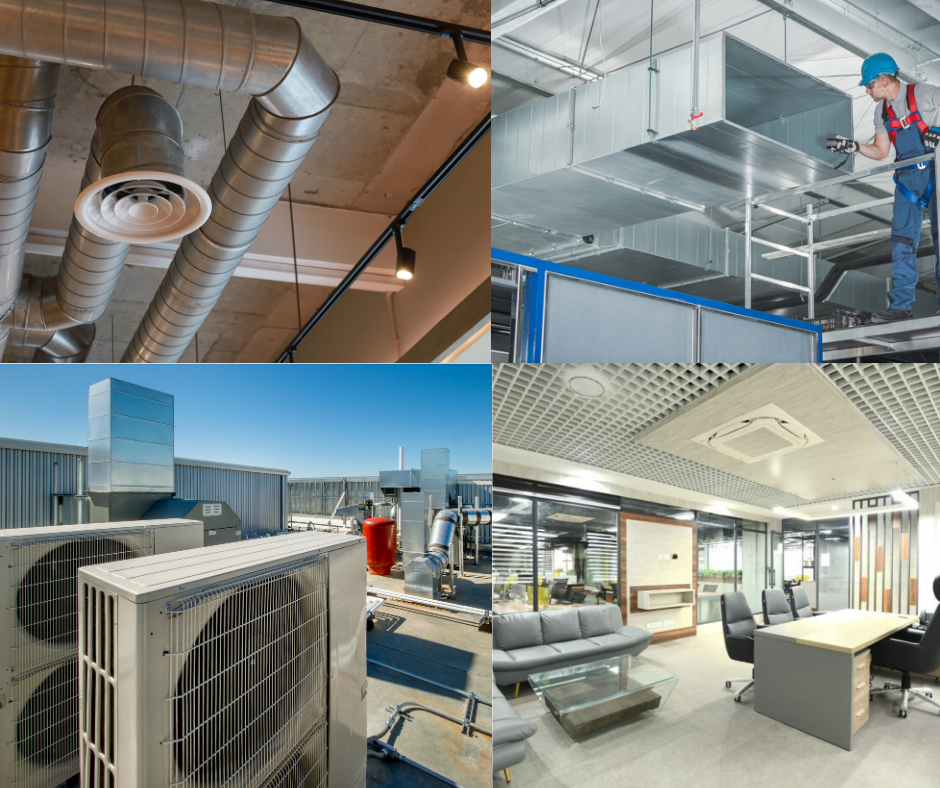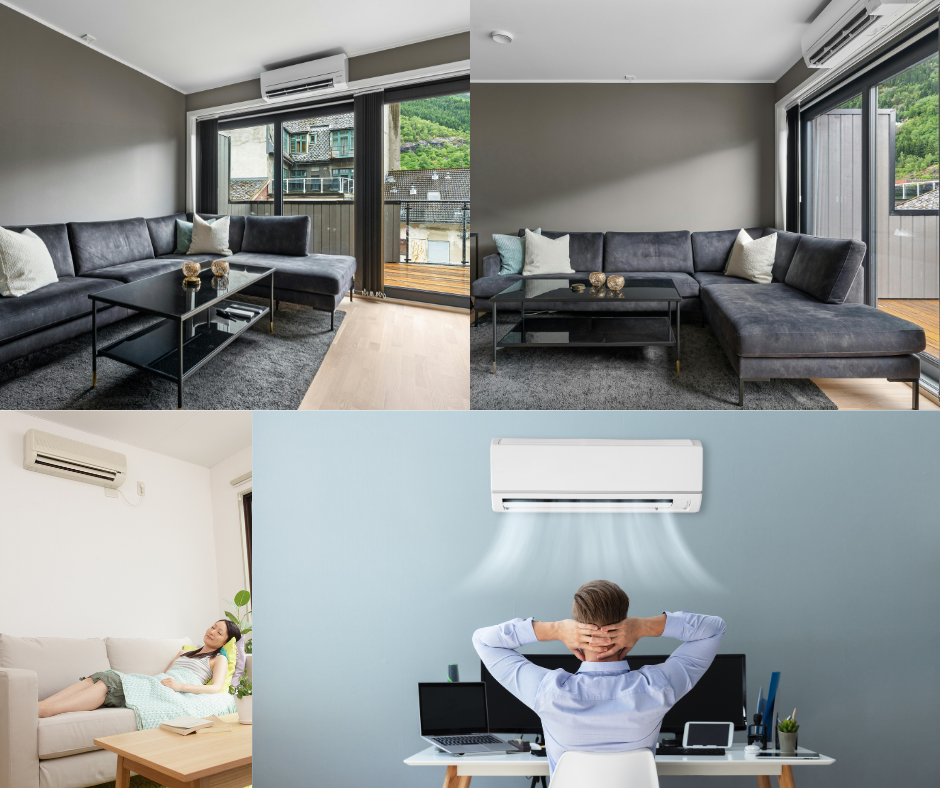What is HVAC, and How is It Different from Air Conditioning?
Understand the complete difference to choose the right indoor climate solution for your space.
At Alviz Electro India Pvt. Ltd., we specialize in designing, installing, and maintaining HVAC and air conditioning systems that deliver year-round comfort, energy efficiency, and air quality. But many people still confuse the terms HVAC and air conditioning. This guide will clear up that confusion and help you understand their key differences.

What is HVAC? – A Complete Climate Control System
- Definition: HVAC stands for Heating, Ventilation, and Air Conditioning. It’s an integrated system that manages indoor temperature, humidity, and air cleanliness to ensure comfort in all seasons.
- Heating Component: The heating function is typically provided by furnaces, boilers, or heat pumps that warm up the space during colder months, making interiors comfortable and liveable.
- Ventilation System: Ventilation is crucial for bringing in fresh air, removing stale air, controlling moisture levels, and eliminating indoor pollutants like dust, bacteria, and odors. This is especially important in commercial and industrial buildings.
- Air Conditioning: The air conditioning part of HVAC systems is responsible for cooling and dehumidifying indoor air during hot weather. It maintains a stable temperature and enhances indoor comfort.
- Indoor Air Quality (IAQ): Modern HVAC systems also include air filters and purifiers that enhance IAQ, making the indoor environment healthier and safer.
- Automation & Smart Control: Many HVAC systems today are integrated with smart thermostats and building management systems (BMS), allowing users to automate and monitor temperature, airflow, and energy usage.

What is Air Conditioning? – A Focused Cooling Solution
- Definition: Air conditioning (AC) refers to a system designed specifically for cooling and dehumidifying indoor air. It does not provide heating or ventilation as HVAC systems do.
- How It Works: An AC unit works by extracting heat from the indoor air and releasing it outside through a compressor and condenser. It then circulates the cooled air back into the room.
- Types of Air Conditioners: There are different types of AC systems, including window ACs, split ACs, ductable systems, cassette units, and central air systems, each catering to different space sizes and applications.
- Cooling-Only Functionality: AC systems are designed only for use during hot weather when cooling is needed. They don’t address indoor air quality or fresh air intake.
- Best Use Case: Air conditioning is ideal for small rooms or specific zones that require targeted cooling, such as bedrooms, conference rooms, or retail shops.
Key Differences Between HVAC and Air Conditioning
- Functionality Scope:
- HVAC offers a three-in-one solution – it heats, cools, and ventilates, ensuring complete year-round climate control.
- AC focuses only on cooling, which makes it limited in colder climates or when ventilation is required.
- System Components:
- An HVAC system includes various components such as a furnace or heat pump for heating, air conditioner for cooling, ducts, and ventilation systems.
- An AC system typically includes only the cooling unit, like an indoor evaporator and an outdoor compressor.
- Seasonal Usage:
- HVAC systems are ideal for all-season use, functioning in both summer and winter.
- AC systems are generally used only in hot weather, which limits their application.
- Air Quality Management:
- HVAC systems often come equipped with air purification and filtration options that improve air quality.
- Most AC systems do not have advanced IAQ solutions unless integrated with additional features.
- Energy Efficiency:
- HVAC systems can be equipped with inverter technology, zoning systems, and smart thermostats that enhance energy efficiency and reduce operating costs.
- AC units may lack energy-saving modes beyond the standard thermostat functions.
- Application Areas:
- HVAC is better suited for large-scale buildings such as corporate offices, hotels, hospitals, factories, and auditoriums where complete climate control is needed.
- AC systems are best for residences or small commercial spaces with limited cooling requirements.
Which System Should You Choose – HVAC or AC?
- Choose an HVAC system if:
- You need both heating and cooling throughout the year.
- Indoor air quality and ventilation are important to your environment.
- You’re looking for energy-efficient solutions with smart control features.
- You manage a large or multi-zone facility that requires climate control in different areas.
- Choose an AC system if:
- You only require cooling, especially during summer.
- You’re outfitting a small space or a single room.
- Budget constraints limit the need for a full HVAC installation.
Why Choose Alviz Electro India Pvt. Ltd. for HVAC & AC Solutions?
- At Alviz, we are committed to delivering customized HVAC and air conditioning systems that fit your building’s size, usage, and energy demands.
- Our team provides complete support, including system design, installation, maintenance, and upgrades for both commercial and residential clients.
- We work with cutting-edge technologies, including VRF systems, ductable units, AHUs, and inverter ACs, ensuring optimal comfort and performance.
- Whether you’re designing a new facility or upgrading an existing one, we help you maximize comfort, energy savings, and long-term reliability.
Conclusion: Making the Right Choice Between HVAC and Air Conditioning
Understanding the difference between HVAC and air conditioning is essential when planning your indoor climate system. While both systems offer cooling, HVAC goes a step further by providing heating, ventilation, and improved air quality—making it a more comprehensive solution for year-round comfort.
If you need only cooling for a limited area, a standalone air conditioning system may be sufficient. However, for larger spaces, multi-season use, and better energy management, an HVAC system offers greater flexibility, efficiency, and long-term value.
Disclaimer:
The blog posts on alviz.in are for informational purposes only. While we aim for accuracy, the content may not reflect the latest updates or specific advice. Alviz Electro India Pvt. Ltd. is not responsible for actions taken based on this information. For expert guidance, please contact us.